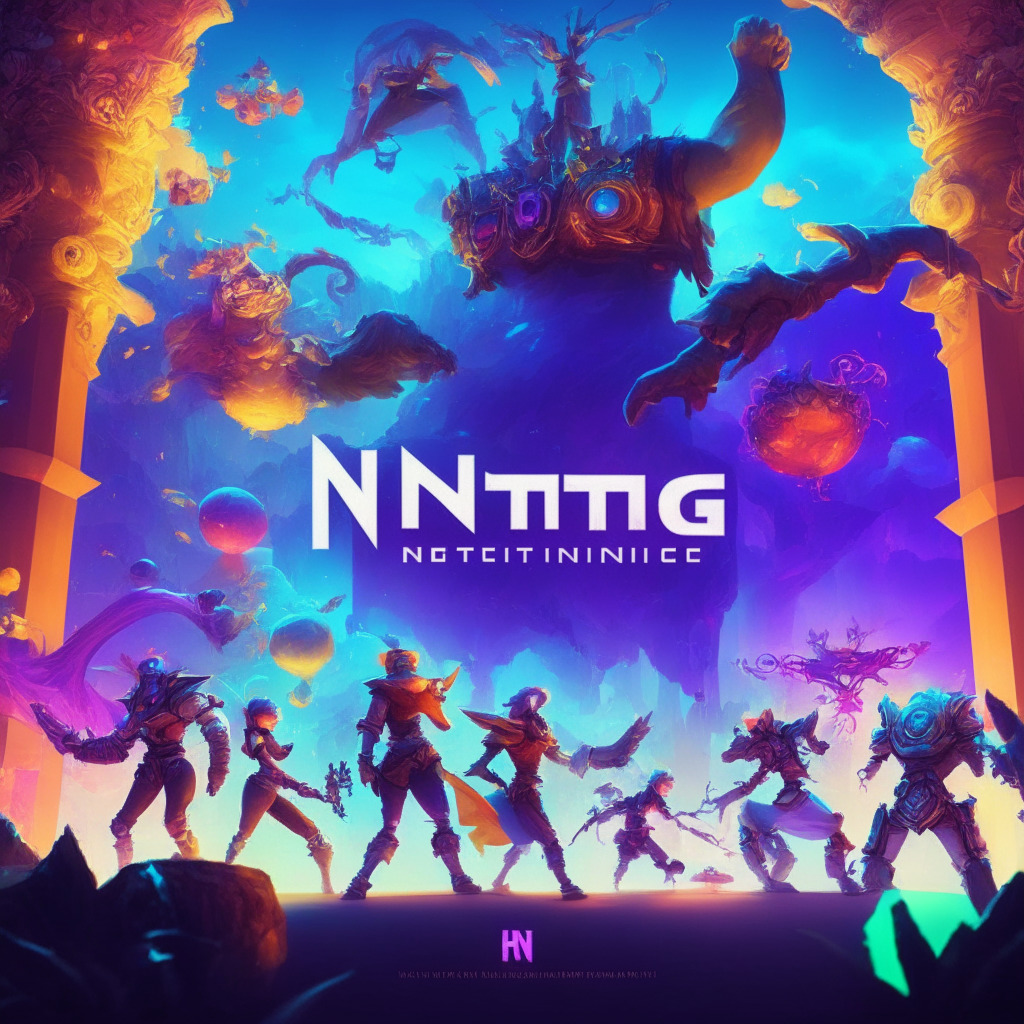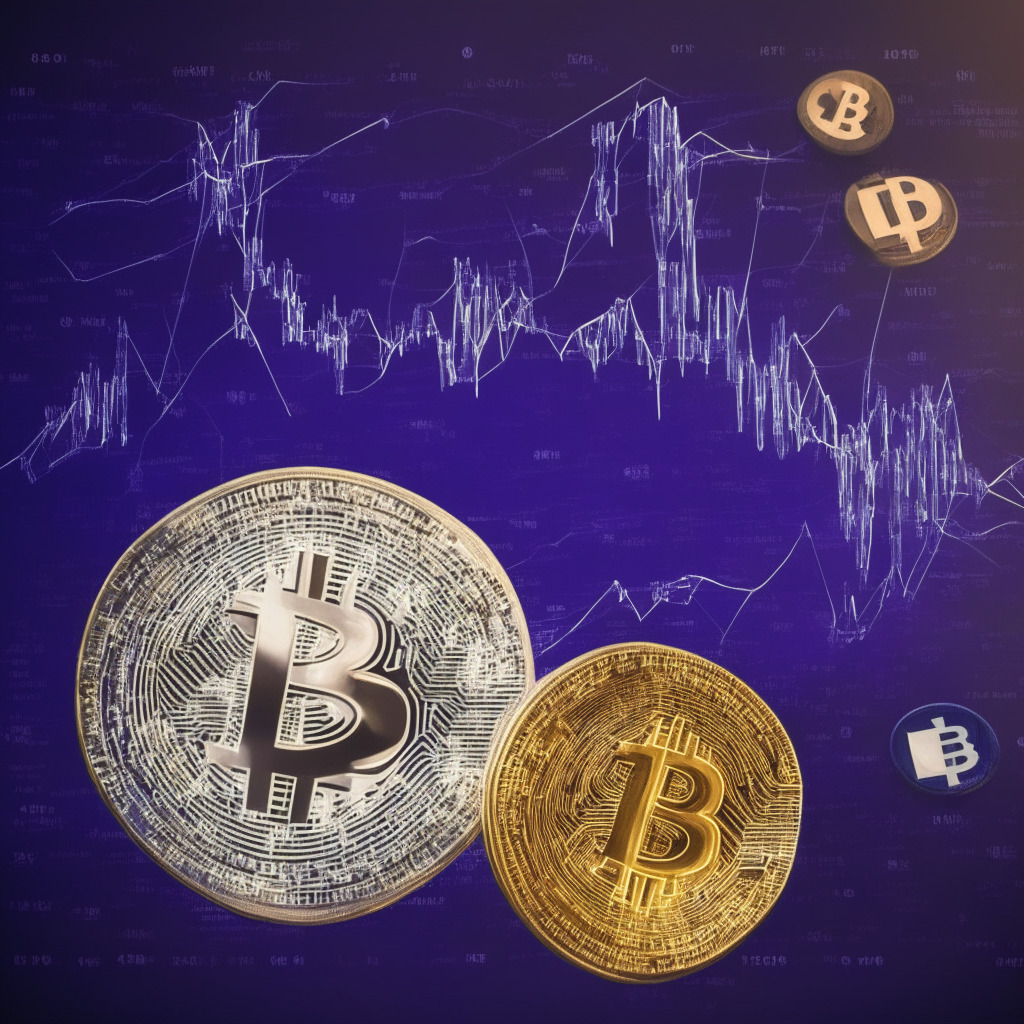Mythical Games, a Web3 game studio, recently raised $37 million in a Series C1 funding round led by Scytale Digital, with participation from ARK Invest, Animoca Brands, and others. The company focuses on NFT-based games like NFL Rivals and is working on integrating more Web3 elements and educating players about tradable assets.
Search Results for: Apple Pay
FTX Downfall: Unraveling the $700M Influence-Buying Scandal & Future of Crypto Regulation
The FTX crypto exchange downfall reveals shocking revelations, including the misappropriation of $700 million by former leader Sam Bankman-Fried to buy influence. The unfolding saga underscores the importance of risk management, regulation, and maintaining industry integrity and credibility.
Heating Pools with Bitcoin Mining: Eco-Concerns vs. Innovative Solutions
Brooklyn-based bathhouse, Bathouse, has implemented a small-scale Bitcoin mining operation to heat its swimming pools. Facing mixed reactions, this unique heating solution sparks debates over environmental impact, while showcasing potential innovative applications of blockchain technology.
Crypto Regulation Wars: Terraform Labs, Stablecoins, and the Battle for Blockchain’s Future
Terraform Labs co-founder and former CFO face prison sentences and extradition due to fraud charges, highlighting challenges and regulatory uncertainties in the cryptocurrency industry. As stablecoins gain traction, striking a balance between fostering innovation and protecting investors is a pressing challenge for global regulators.
Balancing Privacy and Transparency: Pros and Cons of a US Central Bank Digital Currency
The U.S. Treasury Department explores Privacy Enhancing Technologies (PETs) to protect privacy and anonymity in potential digital dollar transactions. As the U.S. considers introducing a Central Bank Digital Currency (CBDC), addressing risks and striking a balance between privacy and transparency remain top priorities for policymakers.
Groundbreaking Ruling on DeFi Regulation: A New Era of Compliance or Stifled Innovation?
A federal judge ruled in favor of the U.S. Commodity Futures Trading Commission against Ooki DAO for offering unregistered commodities, breaking the notion that DeFi entities are beyond regulatory scope. This highlights growing regulatory encroachment and questions how future regulations will adapt to decentralized platforms.
SEC Summer Crackdown on Binance & Coinbase: Legal Clarity or Market Fiasco?
The SEC has targeted Binance and Coinbase in its recent crypto crackdown, resulting in 13 charges against Binance and accusations of unregistered securities offerings against Coinbase. Despite ongoing uncertainty, these events may bring desired legal clarity to the industry.
FTX Bankruptcy and Customer Privacy: Protecting Assets or Hindering Trust in Crypto Markets?
The ongoing disagreement surrounding the collapsed crypto exchange FTX and the disclosure of customer names persists, with concerns that revealing names could “degrade value” and impair the sales process, affecting repayment to creditors. Highlighting the delicate balance between privacy and public transparency, this case could have ramifications on cryptocurrency regulations and future exchange operations.
Ripple
The Ripple Impact Initiative report showcases the company’s dedication to financial inclusion, blockchain research, sustainability, climate action, and employee impact programs. Despite an ongoing lawsuit with the SEC, Ripple continues addressing global issues and pushing the boundaries of blockchain technology.
Celebrities Face Lawsuit Over EMAX Token: Unfair Crypto Promotions & Ethical Concerns Debated
A class action lawsuit against Kim Kardashian and Floyd Mayweather resumes, alleging improper promotion of EthereumMax (EMAX) token. Judge Fitzgerald revived “unfair competition” claims, emphasizing that undisclosed paid promotion of crypto tokens is an “unscrupulous and thereby unfair practice.” The case highlights ethical concerns and potential dangers associated with celebrity-endorsed cryptocurrency projects.
AI vs. Actors: SAG-AFTRA Strikes, Demanding Fair Play in the Age of Generative AI
The Screen Actor Guild (SAG) is focusing on generative AI’s impact on the entertainment industry, emphasizing the need for clear boundaries concerning individuals’ images, informed consent, and fair compensation. SAG-AFTRA’s national executive director advocates a human-centered approach to AI implementation, balancing technology’s incorporation while respecting performers’ rights and livelihoods.
Revealed: Binance’s Influence Over Affiliate Binance.US Bank Accounts Raises Concerns
Bank records reveal Guangying Chen, a senior executive at Binance, as the primary operator for several Binance.US bank accounts, raising concerns about Binance’s influence over its supposed independent affiliate. This disclosure intensifies scrutiny as Binance faces legal action from U.S. regulatory agencies.
Crypto’s Regulatory Balance: Lessons from Influencer Danny Devan’s $1.2M Fraud Case
Social media influencer Denish Sahadevan pleaded guilty to money laundering using cryptocurrency, obtaining over $1.2 million in government relief loans. His actions fuel the debate between cryptocurrency regulation proponents and critics, highlighting the need for a delicate balance between oversight and innovation.
Debt Ceiling Deal Impact on Bitcoin: Crypto Market Reaction & Future Outlook
Bitcoin steadied after dropping below $28,000 due to progress on a debt ceiling deal, while government debt may prove favorable for the crypto market. Analysts suggest bitcoin’s resilience amid monetary tightening could be due to factors like store-of-value, NFTs, and supply/demand dynamics.
Crypto Insider Trading Case: Impact on Regulation and Trust in the Industry
Former Coinbase manager Ishan Wahi and his brother Nikhil Wahi settled with the US SEC over allegations of insider trading involving cryptocurrencies. The case highlights ongoing concerns about insider trading in crypto and the complexities of achieving a balanced regulatory framework.
Crypto
Crypto enthusiasts visiting Bali are warned against using digital assets for payment as it’s illegal in Indonesia. Non-compliance risks deportation, sanctions, or criminal penalties. Despite recognizing crypto as a commodity in 2018, its use as a form of payment remains strictly prohibited.
Debt Ceiling Negotiations Impact on Bitcoin: Analyzing Market Trends and Future Predictions
The ongoing debt ceiling negotiations are a primary concern for crypto investors, impacting Bitcoin and the broader crypto market. Market analysts believe regulatory developments and next year’s Bitcoin halving event could significantly influence the crypto market, while recent U.S. labor market data has not affected asset prices, signifying a shift in market sentiment.
OKX App Upgrade Boosts Hong Kong Crypto Trading: Security vs. Market Volatility Pros & Cons
OKX, the world’s second-largest crypto exchange, releases an upgraded app for Hong Kong users, offering safe and secure spot trading of 16 widely-used cryptocurrencies. This comes ahead of Hong Kong’s new regulatory framework for virtual asset service providers, with OKX demonstrating their commitment to regulatory requirements, security measures, and compliance capabilities.
Crypto Markets Tumble Amid US Debt Ceiling Fears and UK Inflation: Analyzing the Impact
Crypto markets faced a shake-up as concerns over UK inflation and Janet Yellen’s U.S. debt ceiling warning sent prices spiraling. The Federal Open Market Committee minutes revealed divided opinions on rate hikes, affecting investor confidence. Major cryptocurrencies, including Bitcoin and Ether, experienced significant declines, reflecting reduced investor optimism.
Bankruptcy Woes: Core Scientific Struggles Amid Crypto Regulation Uncertainty
Core Scientific, once the largest crypto mining company, is struggling under bankruptcy and creditor pressure amidst evolving cryptocurrency regulations. As the business landscape changes, adaptability is crucial for the ever-maturing crypto industry.
Bitcoin: Future Monetary Dominance or Trapped in Traditional Finance’s Shadow?
Bitcoin’s growing number of “wholecoiners,” or addresses holding at least 1 BTC, indicates potential shift towards hyperbitcoinization, where Bitcoin replaces traditional financial institutions as the dominant value system. However, debates persist on the superiority of centralized fiat systems for everyday transactions and challenges including cybersecurity remain in the crypto market.
Navigating Australia’s Crypto Landscape: Binance Suspension Sparks Concern & Calls for Clarity
The suspension of Australian dollar services on Binance Australia led to concerns among crypto users. However, CEOs of other Australian-based exchanges emphasized the continuity of their own services, stressing that the issue seems to be “Binance-specific.” The situation highlights potential risks in the market and the need for a comprehensive regulatory framework in the Australian crypto landscape.
Axie Infinity Soars, Bitcoin Struggles: Exploring the Conflicting Crypto Markets and Regulations
Axie Infinity’s native cryptocurrency AXS rallied 12% after its debut on the Apple app store, attracting new users to the play-to-earn project. Meanwhile, France welcomes US crypto firms seeking regulatory predictability, and a GFMA report suggests distributed ledger technology could save $100 billion annually in securities markets.
Bitfarms Accelerates to 6 EH/s: Impressive Growth or Unsustainable Surge?
Canadian mining company Bitfarms accelerated its plans to achieve 6 EH/s of computing power by Q3 2023, triggering a 7% uptick in shares. Despite the momentum, skeptics question the long-term sustainability due to previous debt default concerns and the volatile crypto market. Continual innovation and effective deleveraging are crucial for Bitfarms’ future success.
Florida’s CBDC Ban: Protecting Privacy or Stifling Innovation? The Great Divide Explained
Florida Governor Ron DeSantis recently signed a bill barring the use of centralized digital dollars, intensifying the state’s opposition to central bank digital currencies (CBDCs). The move reflects the ongoing debate between supporters of cryptocurrencies and proponents of CBDCs, with concerns about government control, privacy, and financial inclusion shaping the future of digital assets.
Hive Blockchain’s Bold Move: Doubling Hashrate Amidst Market Uncertainty
Hive Blockchain announces plans to double its computing power to 6 EH/s through an ATM sale, raising up to $100 million. The company aims to optimize near-term repayment and mines both bitcoin and other crypto tokens. Industry growth and expansion are evident, but execution and timeline could influence the outcome.
Exploring Web3: Reshaping Ownership, Privacy, and the Future of Cryptocurrencies
Web3 aims to introduce “ownership,” where users control their own data, payments occur peer-to-peer, and data becomes decentralized. Despite challenges like scalability, its potential to grant greater privacy and data control makes Web3 a compelling concept for the digital age.
The Blockchain Revolution: Pros, Cons, and the Path to Mainstream Adoption
Exploring recent developments in blockchain technology, this article highlights the growing adoption of cryptocurrencies, expanding use cases beyond finance, and challenges such as cybercrime, environmental concerns, and regulatory uncertainty. The author emphasizes the need for increased security, energy-efficient protocols, and progressive regulations to support blockchain’s future.
Balancing Blockchain’s Potential with Market Volatility and Security Concerns
This article delves into the debate surrounding the future of blockchain technology, addressing aspects such as its potential to disrupt traditional systems, market volatility, user safety, and regulatory challenges. The excerpt also touches upon decentralized applications, crypto assets, and the need for regulations to foster a sustainable crypto ecosystem.
Blockchain’s Future: Disruptive Potential vs Sustainability & Security Concerns
Blockchain technology’s decentralized nature promises a paradigm shift in data and transaction management across industries. However, concerns over security, scalability, sustainability, and energy consumption raise questions about the feasibility of implementing blockchain solutions globally. Enthusiasts and skeptics alike watch its potential unfold.
Yachtify vs. Established Projects: Diversifying Investments in Presale Opportunities
Yachtify, a presale-stage project, aims to revolutionize fractional private yacht ownership using its native YCHT token. Despite established projects like Dash and GMX experiencing value decreases, Yachtify presents long-term potential for investors seeking to diversify in promising early-stage opportunities.
North Carolina Rejects CBDCs: Pros, Cons, and Implications for the Future of Digital Currency
The North Carolina House of Representatives unanimously passed legislation prohibiting the use of Central Bank Digital Currencies (CBDCs) for payments within the state, raising concerns about privacy, autonomy, and potential implications for the existing financial ecosystem. The bill disallows the Federal Reserve from using the state as a testing ground for CBDC initiatives.































